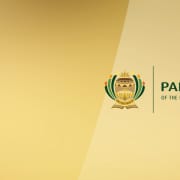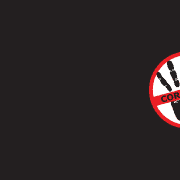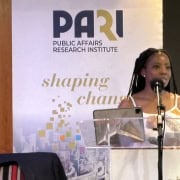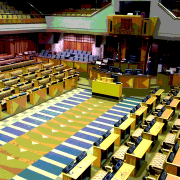|
Getting your Trinity Audio player ready...
|
On 25 and 26 October two civil society organisations – the Public Affairs Research Institute and the Council for the Advancement of the South African Constitution – jointly hosted a conference to discuss government’s response to state capture and the implementation of the Zondo commission recommendations, made public last year. The event, the second of its kind, took place in in Johannesburg and brought together a range of minds from the sector, the media, academia, and the public sector.
The first state capture conference, held in September 2022, followed two months after the commission’s final report was released, while this year’s event incorporated both the report recommendations and the progress of their implementation. Speakers explored the meaning behind the broad themes of the recommendations – including legislative reform that is underway at different stages; potential structural changes in the anti-corruption infrastructure; the objectives of improving the public procurement sector; and the contextual positioning of Parliament in all these processes.
Two key conclusions were drawn towards the end of the event, during a session with the last panel who were meant to reflect on the role of civil society in monitoring the process of government’ s implementation plan. Together they rested in the notion of collective accountability and activism, and the responsibility we all have as South Africans to address the true impact of state capture and corruption. What the country needs now is leadership from the ground, it was argued, that would have to adjust the collective temperature of our activism to what is needed for an impactful response to government’s fight against corruption.
Tessa Dooms, director at the Rivonia Circle, called out the obliviousness of South Africans to what may well be the country’s ‘second state of emergency’, similar to that of 1985 but with a different enemy, while author and former government spokesperson Themba Maseko noted the lack of urgency within civil society in mobilising South Africans and getting them to know, and care enough, about the implications of state capture to hold government accountable for the changes that need to happen, and fast.
The reason the two concepts stood out is that they are linked, because they place the responsibility of changing the structure, trajectory, and pace of the anti-corruption landscape squarely at the feet of the current middle class. They raise the need for a stricter look at our society today, and what we as South Africans are willing to truly sacrifice while demanding decisive leadership from our government.
Plan needed to respond to state capture
Prior to the other two placing the matter into deeper context, however, it was Ahmed Kathrada Foundation CEO Nishan Bolton who laid the foundational elephant in the room, questioning the drive of the audience. “I asked myself [during the course of the event] what we would do here today if Mosebenzi Zwane and Ace Magashule and others had registered for this conference and come in and sat here. What would we do?
The reality, Bolton added, is that the room would not know how to react to two of the implicated people in the state capture report, because there isn’t a plan from the ground on how to respond to state capture, which he argued had moved beyond the parameters of the commission and continues in other forms. He used the example of another implicated party, former cabinet minister Des van Rooyen, being appointed to the board of the Gauteng Enterprise Propeller in September this year, and the absence of a response from activists at this news, even though Chief Justice Raymond Zondo found in the report that Van Rooyen had participated in the capture of the national treasury in December 2015.
“I think we have been very pleasant. We’ve been very respectful. I think civil society as a whole has lost its anger on the issue of state capture and corruption,” said Bolton.
Dooms took the argument further when she declared: “I’m starting to make the analogy that perhaps we’re in 1985, and we don’t realise it. That in fact, we are really in the grips of what could easily be a people’s state of emergency, but we don’t realise it because we have a veneer of democracy … and maybe what is needed … is a lot more cross-pollinated conversations … we need to be having conversations that actually do what I call radical solidarity.”
In the 80s, class identity was important and possible, she added, because the majority was in the working class. “The truth is, right now we are in this room of the middle class of society, not the working class, we don’t represent the majority. We are barely connected to the majority of people who are affected by this crisis.”
She went on to quote political analyst and commentator Sithembile Mbete, who herself had participated in an earlier panel discussion, as giving a shocking statistic in a previous public engagement.
Mbete said on average, South Africa had seen 26 protests a day since the beginning of 2023. This was a sign for Dooms that “the deep sense of despair that we feel when we look at the work that we’re doing is only multiplied in other parts of the country where people are less informed about the state of the country but feeling these consequences much more.” The poor majority are taking their frustrations to the streets in response to poor service delivery from their local authorities and are not necessarily making the connection between the incompetence at that level, and the higher level inadequacy in dealing with corruption at the higher echelons of state power.
Civil society must not leave citizens behind
For Maseko, the time is now for civil society to help connect the public with the state and inform vital and necessary conversations across different platforms and classes of society.
“My concern is that clearly, the state is dragging its feet in terms of implementing the recommendations of the Zondo commission,” he said, “largely because many of the decision makers who are supposed to be responsible for implementing those recommendations are themselves somehow implicated in that report. So it is not surprising that in fact, the pace of implementing those recommendations is as low as it is.”
Civil society played a vital role in the past, Maseko added, and it still can play an important role, most importantly in terms of mobilising society. “My worry is that there are a lot of these conversations, where we talk about what needs to be done to make sure that the recommendations are implemented. But a lot of our conversations tend to be amongst ourselves as people don’t know what’s happening. People have some ideas about what needs to be done – but we’re leaving our citizens behind in those conversations.”
The conversation must involve ordinary citizens, said Maseko. “I think that the people who can lead that conversation in our communities are yourselves as civil societies. I think there’s a vital role to play in terms of mobilising society and making sure that we keep society informed about what is or what is not happening, or what government is not doing as far as the recommendations of the commission are concerned.”
He commended civil society for participating in the legislative reform process by making meaningful submissions towards changes in legislation, but cautioned that the same energy should be invested in informing the public about those processes.








